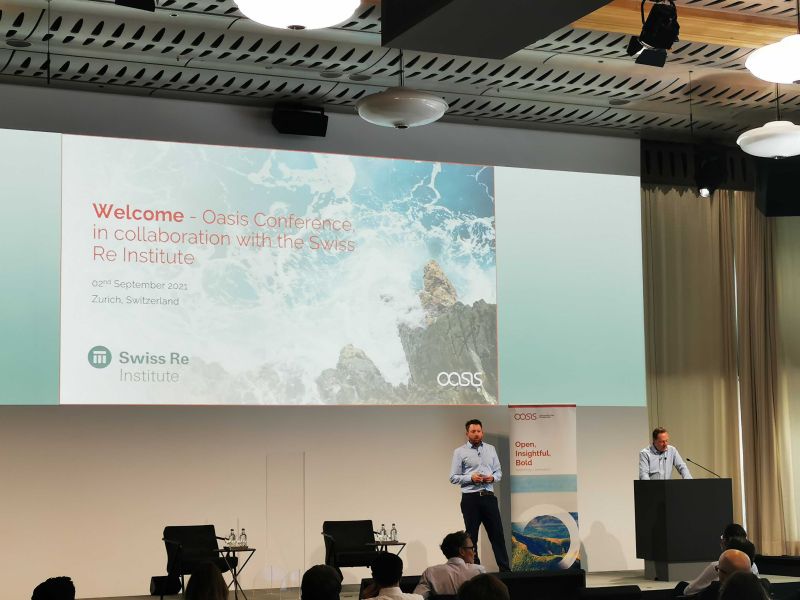Oasis conference 2021 back to hybrid mode at the SwissRe center.
It was good. A bit shorter than usual, but that may only have helped to set the focus. While the majority of people tuned in virtually from lots of different places across the globe, a reasonably sized group of mostly Zurich-based supporters gathered in person at the SwissRe center for global dialogue. The first such event for both the location and most of us, following a pandemic-induced break of one-and-a-half years, it felt especially good to be back. Kudos to the SwissRe event team that organized a very smooth and enjoyable event, where we got treated to a small apéro while feeling safe and responsible at all times.

Talks and discussions were focused around a few key areas. Industry- and stakeholder-wide collaboration and open-source standards was one, recent research on climate change and related forecasts on how the intensities and frequencies of events may change in different areas of the world across the various perils, another.
In relation to the latter, the recent July floodings in Europe were highlighted by multiple speakers from a number of angles and perspectives. While it was generally acknowledged that climate change has led to a significantly shorter return period for this kind of event, it does remain somewhat difficult to link an initial cause like a large precipitation event together with other important factors in order to generate a realistic view on the resulting flood risk. Obviously flood risk is one of the perils that is most clearly and negatively impacted by climate change, and fortunately we have several specialist modeling companies (like JBA or Fathom) working on updated and improved hazards, supported by a vast pool of researchers and academics, which the community hopes to continue to engage even more and better into the Oasis initiative.
Lastly, we do hope that we can continue to grow the Oasis adoption further, not just for the open data standards but the platform as a whole, and look forward to future events!

